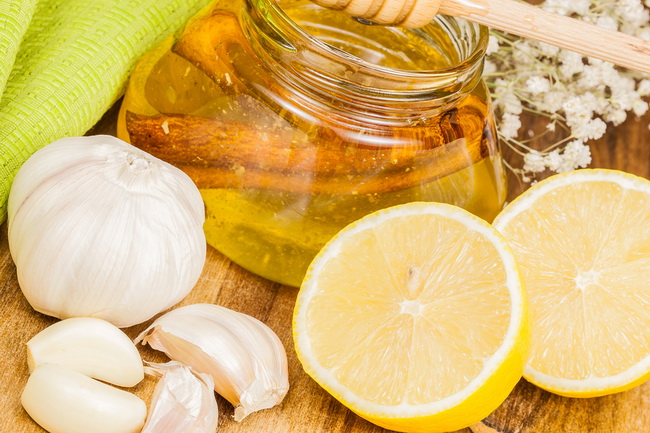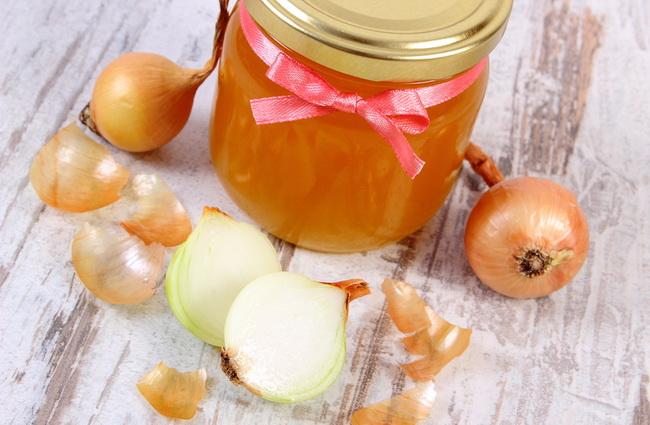- Make It Yourself Lavender Heart-Shaped Bath Bombs!
- 20 Things You Never Knew About “Down There”
- 12 Best Foods For Those Suffering From Arthritis Pain
- 12 Personal Hygiene Mistakes Almost Everyone Makes (Mom Never Told You About #4!)
- 15 Medicinal Plants And Herbs From The Cherokee People
- 12 Mind-Blowing Benefits Of Drinking Coconut Water During Pregnancy
- 12 Outstanding Winter Foods That Won’t Fatten You Up Like A Christmas Turkey
Super Effective Ancient Remedies For Bronchitis, Asthma, And The Flu

Photo credit: bigstock.com
There are a great many people all over the world who suffer from asthma, bronchitis, chronic bronchitis, and other types of breathing problems who fail to find relief unless they are under the influence of toxic prescription drugs.
Even a bad case of the flu can make breathing difficult for weeks on end. Is there anything more frightening than listening to a loved one, especially a small child, gasping for air, coughing, and struggling to simply breathe?
You and your loved ones don’t have to suffer in silence. You can rely on one of the many natural remedies that our ancient ancestors (and even your grandmother!) have used for thousands of years to treat all kinds of respiratory problems.
Want to know more? Keep reading and find out what our ancestors did to ease breathing problems.
1. Lungwort
As the name implies, this plant has been used since at least the 1600s to clear mucus from the nose, throat, and upper respiratory tract. Lungwort also soothes the mucus membranes, which can ease nagging coughs. Mix two teaspoons of the dried herb in one cup of boiling water and steep, covered, for five to 10 minutes. Strain and then add a teaspoon or so of raw, organic honey. Drink one cup two or three times each day.
Continue to Page 2

Photo credit: bigstock.com
2. Oregano Oil
Oregano Oil is one of the most powerful yet completely natural antibiotics in the plant world. Two of the most powerful compounds are carvacrol and rosmarinic acid, which are natural antihistamines and decongestants. Use oregano oil the same way you use eucalyptus oil, and breathe in the healing steam as often as needed.
3. Mullein
This is another ancient herb that has been used for several hundred years to ease breathing problems. Mullein is a natural anti-inflammatory that can reduce pain levels. Mullein flowers and leaves are also good for coughs and sore throats. Make a tea by mixing two teaspoons of the dried herb in one cup of boiling water. Allow to steep, covered, for 10 minutes. Drink two or three cups each day.
4. Sea Buckthorn
This is the powerful herb with the strange name! For the treatment of asthma and chronic coughs, this herb has been used for hundreds of years to improve breathing. This is generally sold as a supplement. Consume as directed or speak with your doctor about the proper dosage for your unique situation.
5. Eucalyptus Oil
Eucalyptus oil has been used for an untold number of years to clear up all kinds of respiratory problems. The best way to use the natural antibacterial, antiseptic, and antioxidant power of eucalyptus oil is to boil a small pot of water and add a half a dozen drops or so of eucalyptus oil. Drape a towel over your head and breathe in the steam until easy breathing returns. (Always be careful not to burn yourself with the steam). You can repeat this as often as needed to keep your airways clear.
6. Lobelia
This herb is so effective when it comes to improving breathing abilities that even race horses are given this as a means of helping them breathe more deeply. This is perhaps one of the oldest herbs known to man. Lobelia breaks up congestion by thinning the mucus in the respiratory tract. Lobelia also stimulates the adrenal glands to release a compound called epinephrine, which relaxes the airways. This alone can help you breathe easier. Many over—the-counter cold and cough remedies use lobelia! This herb is generally sold as a supplement. Consume as directed or speak with your doctor about the proper dosage for your unique situation.
7. Chaparral
This plant, native to the Southwestern states, has been used by Native Americans for ions for respiratory support and detoxification. Chaparral is a natural antihistamine and has antioxidants that help to ease irritation of the airways. Chaparral is generally sold as a tincture, but you can also find chaparral tea. Drink two or three cups of chaparral tea for relief of respiratory problems.
Continue to Page 3

Photo credit: bigstock.com
8. Ancient Easy Breathing Recipe
This remedy has been used for an untold number of years to clear out excess mucus and restore easy breathing. You can make this at home with ingredients that you most likely already have in your kitchen!
Ingredients:
- 6 cups of pure water
- 1 pound of red/purple onions, peeled and thinly sliced
- 2 cups of pure cane sugar, brown sugar, or real maple syrup
- 2 organic lemons
- 7 tablespoons of raw, organic honey
Instructions:
- If you are using brown sugar or cane sugar, place it in a large skillet and, over medium heat, stir constantly until it turns a golden brown color.
- If you are using maple syrup, place it in a large skillet and turn the flame to medium heat.
- Add the onions and cook for three to five minutes.
- Add the water and bring to a boil. Continue to boil until the water is reduced by about a third.
- Cool until it is just hot, not boiling, and add the lemon juice. Mix well.
- Add the honey to the mixture and stir well.
- Allow this mixture to sit, covered, overnight.
- In the morning, strain the mixture through cheesecloth into a clean container. Be sure to squeeze the onions to get out all the juice possible.
- Take one tablespoon of this mixture before each meal. Repeat until your breathing problem has healed. For maintenance, you can consume one tablespoon of this mixture either once each morning or before bedtime.
Your respiratory system works 24/7. In the polluted world that we live in today, it is no wonder that so many people have some type of breathing problem.
READ ALSO: 12 Natural Ways To Beat Bronchitis And Breathe Easy!
Try to avoid dust, mold, chemical fumes, and other types of lung irritants as much as possible. It is comforting to know, however, that in times of need, you can rely on the herbs from Mother Nature to help support a healthy respiratory system.
References:
































